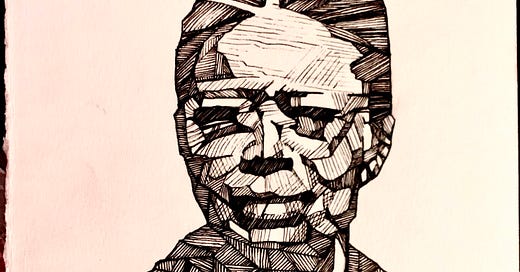During the Tuskegee Study of Untreated Syphilis in the Negro Male, physicians refused to administer penicillin to syphilis patients under their care. Much has been written, litigated, and legislated about the role of racism in the disaster, but the actual history is more nuanced than a simple story of racism run amok. The ongoing failure to understand the full range of lessons the disaster should have taught us has left us perpetually fulfilling Santayana’s prophecy: “Those who cannot remember the past are condemned to repeat it.”
During the pandemic, I had the great pleasure of tele-meeting Robert White, a physician/historian who has been doing brilliant work trying to help society remember the full range of Tuskegee’s lessons.
It’s tempting to think of penicillin as a pleasant-tasting harmless pink fluid that almost instantly cures any bacterial infection, but Dr. White reminded me that early treatment regimens for syphilis involved injecting penicillin every four hours for eight days. In the 1940s, penicillin production was challenging - meaning penicillin was expensive, hard to come by, and of wildly variable quality. Moreover, it wasn’t clear whether penicillin would work to cure people with asymptomatic latent syphilis (which is what nearly all of the Tuskegee Study volunteers had). In two-thirds of people with latent syphilis, the infection never progresses to the deadly tertiary stage.
Even if we imagine a physician in an idealized state of perfect freedom from racial bias - and perfectly free of the impulse to prioritize the integrity of a clinical trial data over the best interests of study volunteers - the syphilis scenario in the 1940s should still have given the bias-free physician pause. Penicillin was unaffordable, of questionable quality, came with debilitating side effects, and was far from guaranteed to provide permanent medical benefit. The central abuse of the Tuskegee Study was simply that the study organizers denied volunteers the right to decide for themselves - either by failing to tell them about the emerging treatment option, or by paternalistically refusing to provide a requested medicine. With hindsight, we can see that penicillin turned out to be a highly effective treatment latent syphilis - and we can clearly see that the risks of early lots of penicillin were pretty much trivial compared to the risks of untreated syphilis. The Tuskegee Study is horrifying because we can look back and see that patients would have made the right call, if only they had been offered the choice. The central lesson is that choosing medicine is a basic human right.
This past week, my dad had a nasal polyp removed. In the past few years, there has been a mounting body of evidence indicating that nasal polyps are at least sometimes caused by human papillomaviruses (HPVs). During my postdoctoral fellowship, I helped develop HPV vaccines. When the vaccines first came online in 2007, I urged all my friends and family to ask their doctors for the vaccine. Everybody who was male or over age 26 was denied, with the rationale that the vaccine was unaffordable and wasn’t absolutely guaranteed to provide permanent medical benefit. With hindsight, we can see that there’s at least some small chance the HPV vaccine would have prevented Dad’s nasal polyp. Although I didn’t recognize it in 2007, I’ve come to view HPV vaccine denials as a form of accidental Tuskegeeism - with age and gender bias in place of racism. My feeling now is that my failure to speak out about the problem over the years makes me complicit.
The upsetting HPV vaccine hindsight - together with my own direct experience of being denied Covid booster doses - has led me to formulate two rules of thumb:
Always bet viruses are causing more damage than you’re currently aware of
Always bet on better-safe-than-sorry vaccination
A recent preprint helps illustrate the point. The results show that receiving the shingles vaccine correlates with a 19% reduction in the risk of developing dementia. The epidemiological analysis rests on the fact that people born prior to September 2, 1933 were arbitrarily denied the shingles vaccine. The dementia protection seems highly plausbile, because we already know the virus that causes shingles also causes encephalitis. Senator Dianne Feinstein just had it. Any adult worried about walking in Senator Feinstein’s shoes should be allowed to choose the shingles vaccine for themselves. Anybody. Of any age, gender, or race. It’s a basic human right! We should all try to help the physicians, pharmacists, regulators, insurers, and bioethicists who are blithely administering these latter-day Tuskegeeistic vaccine denials see the light.
Follow-up: while thinking about how to get Dad the HPV vaccine, I ran across an interesting case study. In it, a 47 year-old gay male sex worker recovering from AIDS asked his doctors for the HPV vaccine. He was denied the vaccine while his doctors developed a custom consent form covering his “off-label” use of the vaccine. After receiving the vaccine, the man’s HPV11-associated nasal papillomas suddenly disappeared. I drill down a bit more on the case of the 47 year-old gay male sex worker who was “too old” to be vaccinated without special consent paperwork here.
Second follow-up: Dad eventually got the HPV vaccine, but only after invoking the expertise of his son. Best of luck to the rest of you.
This story was written by Chris Buck and edited by Chris Tharrington






